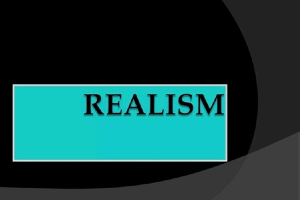Every organization exists to add value to a group or society at large. Marketing communications highlights the value addition provided by such organizations and promoting awareness of the same. It is only when individuals understand and know this value that they reciprocate in the form of purchase decisions or advertising for a brand or a product.
The value of marketing a product or service should be considered as an augmentation to the core offering.
In Ghana, organizations typically view the value they provide as solely being the product or service itself. In what ways can service-based organizations create value that impacts factors such as pricing, product, physical presentation, and personnel, etc.?
The price of a product is not only determined by the content but by add-ons such as packaging designs, promotional cost, delivery cost, research and development amongst others. All these factors that make up a product are deemed valuable.
A cement production company for example does not only market the core product but also packages it in bags that are designed by marketing firms and produced by printing companies.
The manufacturing and distribution of this cement packaging involves human resources and logistical elements, while the messaging around its functionalities is shaped by marketing professionals. It is therefore difficult when people ask the question “what are they paying for?”. In some cases, the price of a product encompasses the content and all other variables that add value to it enhance its worth and overall appeal.
Once we separate the main product content from all other variables, we classify the latter as services.
Consumers are sometimes affected by the price changes that are not related to the content of the product itself. Such effects can include increase in cost of living that trigger compensation adjustments, as well as changes in price of other related variables.
Marketing values today has become so extensive that new market entrants are apprehensive of initial cost. During the introductory phase of a product, we discuss research and development, sourcing of materials, product packaging, personnel for delivery, logistics, and other factors.
Marketers normally save would-be entrepreneurs from huge losses with a dipstick survey of the market findings. Would-be entrepreneurs start with what we term gut-feelings, unsubstantiated with market demand.
Market value is what you pay for by just surfing on the net to get your preferred need at the comfort of your home or anywhere behind your machine.
Market value is all the information made available to you at the time of purchase that aided you in the decision-making process.
Market value is creation of an easy payment gateway advisory service that gave you assurance that your money is safe and goods will be delivered to you.
Market value is the information given to you that made you trust that the logistics company will be deliver the item to you.
Market value is the branding of the sales point that aided you to determine that a particular product is sold therein.
In sum, it must be understood that a product value is not the product in itself but the add-on values which are normally the market values and other variables from conception to production to delivery.
About the Writer
William Yaw Ansah is the Chairman and Country Head of Origin8 Limited. He is a member of the Chartered Institute of Marketing, Ghana and also a Member of the Institute of Directors Ghana, an Accredited Member of the Institute of Public Relations, and a member of the Chartered Institute of Marketers, U.K
Over the years, he has been a mentor and advisor to a number of new ventures in Ghana.
Opinions of Friday, 3 March 2023
Columnist: Origin8
Determinants of product value of a brand - Does marketing play a role?
Entertainment














